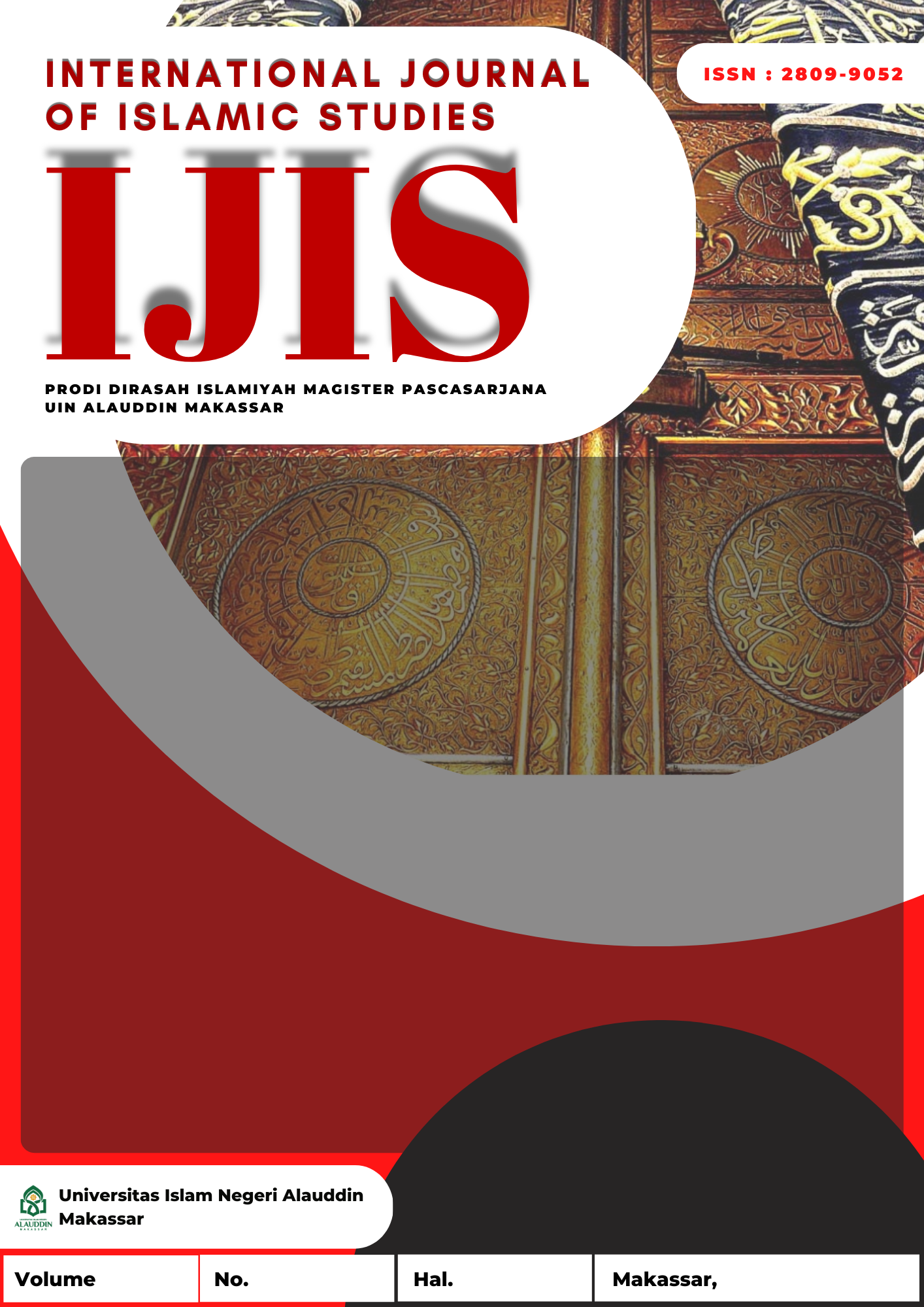MYSTERY BOX AND ITS IMPACT ON SOCIETY (ISLAMIC LAW REVIEW)
Abstract
The main problem of the research is How is the Impact of Buying and Selling Mystery Boxes and the Impact on Shopee E-Commerce Consumers in Makassar City (Review of Islamic Law? The subject matter is further elaborated into sub-problems, namely: 1) what is the nature of buying and selling Mystery Box? 2) What is the Impact of Buying and Selling Mystery Box e-commerce to consumers in Makassar City? 3) What is the Law of Buying and Selling Mystery Box in E-commerce based on Islamic Law?. The type of research used is qualitative by using a research approach, namely: Juridical Phenomenology Approach, and Shari'a Normative Approach. Then the source of this research data is taken from primary data in the form of interviews with customers of Mystery Box Angela Beauty Makassar, and secondary data in the form of data taken from costumers Angela Beauty and literature studies related to the problems studied. Furthermore, the data collection methods used were observation, interviews, and documentation as well as other reference searches. The data processing and data analysis techniques were carried out through three stages, namely: data reduction, data presentation, and drawing conclusions. The results of this study indicate that the impact of buying and selling Mystery Boxes in Makassar City has a major impact on customers who have already purchased mystery boxes. Some of the customers who have bought the mystery box but did not get the product according to the selling price, but instead got the product that was not worth the purchase price. The seller is not responsible for the customer's loss because the seller has provided a product description if buying a mystery box, the prospective customer has agreed to the type, color and shape of the goods received, this is contrary to Islamic law because legal buying and selling must not have an element of uncertainty (gharar) and chancy (Maysiir). In addition, protection against consumers regarding consumer rights does not apply when buying a mystery box because the seller does not accept the return of the goods.
References
Adam, Fikih Muamalah Dari Klasik Hingga Kontemporer. Bandung: Pt.Refika Aditama.2018
Arikanto, Suharsimi. Prosedur Penelitain Suatu Pendekatan Praktik (Edisi Revisi Vi. Jakarta: Rineka Cipta, 2009.
Gemala, Dewi, Hukum Perikatan Islam. Jakarta: Kencana, 2017
Harahap, Nursapia. Penelitian Kualitatif. Jakarta: Wal Ashri Publishing, 2020.
Hasan, M. Ali. Berbagai Macam Transaksi Dalam Islam. Jakarta: Raja Grafindo, 2004.
Isnawati. Jual Beli Online Syariah. Jakarta: Rumah Publishing, 2018.
Kristiyani, Celina Tri Siwi. Hukum Perlindungan Konsumen. Jakarta: Sinar Grafika, 2008.
Kushedar, Deden. Insiklopedia Jual Beli Dalam Islam. Jakarta: Rumah Publishing, 2010.
Mardani. Fiqh Ekonomi Syariah: Fiqh Muamalah. Jakarta: Kencana, 2013.
Muhajirin, Noen. Metode Penelitian Kualitatif. Yogyakarta: Rake Sarisin, T.Thn.
Mustofa, Imam. Fiqih Muamalah Kontenporer. Depok: Pt Raja Grafindo Persada, 2015.
Nafis, M Cholis, Teori Hukum Ekonomi Syariah. Jakarta: Ui Press, 2011.
Nasution, Harun. Islam Ditinjau Dari Berbagai Aspeknya. Jakarta: Universitas Indonesia Press, 2001.
Nata, Abuddin. Metodologi Studi Islam. Jakarta: Pt Raja Grafindo Persada, 2002.
Nurfitria, Tira. “Bisnis Jual Beli Online (Online Shop) Dalam Hukum Islam Dan Hukum Negara”, .” Jurnal Ilmiah Ekonomi Islam, 2017: Volume 3.
Rachmadi, Usman. Hukum Ekonomi Dalam Dinamika. Jakarta: Djambatan, 2000.
Sarwat, Ahmad. Fiqih Jual Beli. Jakarta: Rumah Publishing, 2018.
Shobirin, Jual Beli Dalam Pandangan Islam, Jakarta: Ui Press. 2015
Sugiyono. Metode Penelitian Kuantitatif, Kualitatif Dan R&D. Bandung : Rineka Cipta, 2018.
Syarqawie, Fithriana. Fikih Muamalah. Banjarmasin: Iain Antasari Press, 2015.
Wahab, Muhammad Abdul. Pengantar Fiqih Muamalah. Jakarta: Rumah Publishing, 2018.
Wiwoho, Jamal. Hukum Kontrak, Ekonomi Syariah, Dan Etika Bisnis. Jakarta: Undip Press, 2017.
Copyright (c) 2021 Nurfyana Narmia Sari, Muslimin Kara, Rahmawati Muin

This work is licensed under a Creative Commons Attribution-NonCommercial-ShareAlike 4.0 International License.
Authors who publish with this journal agree to the following terms:
1) Authors retain copyright and grant the journal right of first publication with the work simultaneously licensed under a Creative Commons Attribution License that allows others to share the work with an acknowledgement of the work's authorship and initial publication in this journal.
2) Authors are able to enter into separate, additional contractual arrangements for the non-exclusive distribution of the journal's published version of the work (e.g., post it to an institutional repository or publish it in a book), with an acknowledgement of its initial publication in this journal.
3)Authors are permitted and encouraged to post their work online (e.g., in institutional repositories or on their website) prior to and during the submission process, as it can lead to productive exchanges, as well as earlier and greater citation of published work (See The Effect of Open Access).







